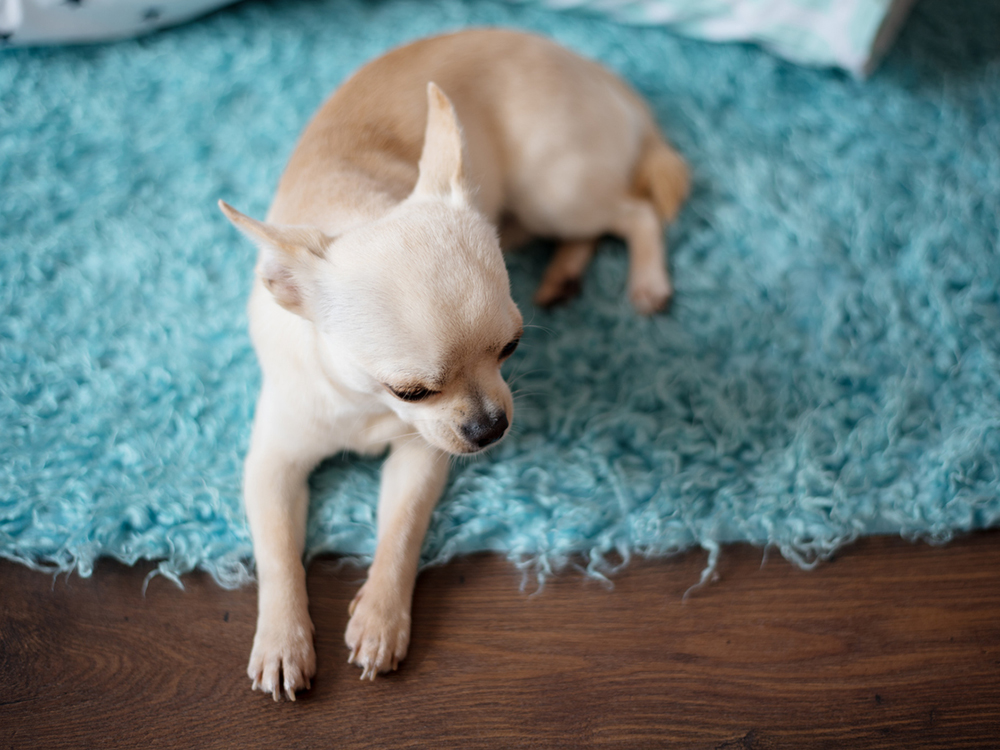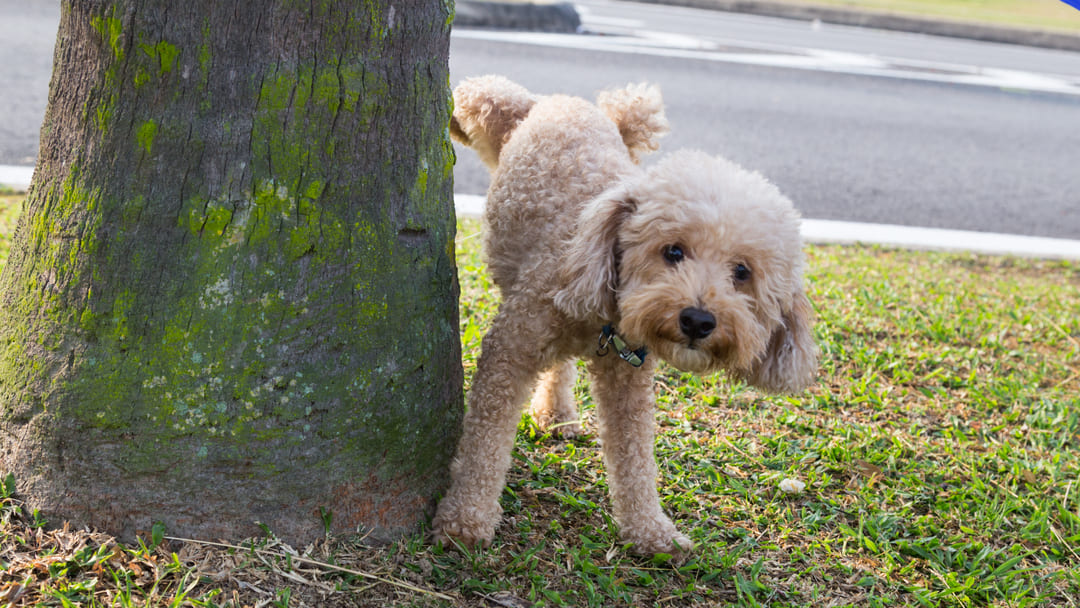Table Of Content

However, it could also be behavioral, such as a response to a change of environment or anxiety. To combat this, you will need to do what you can to solve the underlying issue and commit to re-house train your dog. Dogs use their pee to mark their territory, so if they are peeing inside, they are probably letting someone know that the house is theirs. Non-neutered male dogs are particularly prone to this, but any dog might start doing it in response to a threat to their space.
Cognitive Issues

Try to discourage the behavior and treat them when they urinate outside, but neutering your dog may help. While it can be incredibly frustrating, urinating in the house, whether it be a behavioral issue or driven by a health problem, is not something your pup can control. Below, we walk you through the various reasons why your dog may be peeing in the house and share our top tips on how you can get them to stop. If your dog starts to urinate in the house after years of always peeing outside rain or shine, night or day, that’s a red flag. Take note of any changes in your dog’s urination habits and level of thirst and factor in frequency and quantity.
Concerned About Your Pet's Unusual Behavior?
Elmwood Park neighbors face off over dog peeing on lawn - Chicago Tribune
Elmwood Park neighbors face off over dog peeing on lawn.
Posted: Mon, 09 Nov 2015 08:00:00 GMT [source]
The more opportunities they have to empty their bladder throughout the day, the lower the chance of them having accidents around your home. If it is too challenging for a dog to get up and go outside, they may simply urinate where they are. Canine dementia refers to the general decline of cognitive function as a dog ages.
Horror as Dog Owner Discovers Source of 'Little Yellow Dots' on Couch - Newsweek
Horror as Dog Owner Discovers Source of 'Little Yellow Dots' on Couch.
Posted: Fri, 15 Mar 2024 07:00:00 GMT [source]
“Why Is My Adult Dog Peeing In The House?”
It’s important to spay or neuter your dog to help reduce the likelihood of marking behavior. Providing plenty of opportunities for your dog to mark outside can also help curb this behavior indoors. Even though your senior dog is urinating in the house, it’s not OK to limit their water intake, even at night or when you are at work. Particularly for a senior dog with health issues, limiting access to water could cause serious harm. They could be ill and require medical attention for a disease such as urinary tract infections, or they could be exhibiting a behavioral response. The reasons for your dog suddenly peeing in the home range from innocuous, such as drinking a little too much (water), to the dangerous, such as diabetes.
How to Crate Train Your Dog
After that, in general they can only hold their bladder for the same number of hours as the number of months of their age plus one. Expecting your puppy to wait too long for a bathroom break will lead to an accident. Generally, puppies should be able to hold their urine for at least two hours, while adult and young dogs hold it for at least four to six hours. If your pet always needs to urinate more often than that, it could be a sign of a problem. If you're concerned about persistent symptoms or your pet's water intake, it's best to consult a veterinarian.
Marking their territory
Always clean up your dogs urine right away, as the lingering smell can often lead to more marking. If your dog pees when they get excited or anxious, work on desensitizing them to triggering stimuli and teaching them alternative coping mechanisms, such as sitting or lying down. Provide a calm and structured environment, use positive reinforcement, and consult with a professional trainer or behaviorist for additional guidance.
Urinary Frequency in Dogs: What to Know
First, immediately after an outdoor bathroom break, your dog comes into the house and dribbles urine across the floor. Or, worse, your adult canine looks you squarely in the eye and urinates in front of you. “Senior dogs are often walking a tightrope of health that we need to keep in balance. If an owner notices a change—in water consumption, appetite and certainly dog incontinence—it warrants a veterinary visit,” advises Dr. Buzby. If your neutered dog is still marking after you have tried the above suggestions, the marking could be due to underlying anxiety. Vets, trainers, and veterinary behaviorists can help determine how to proceed for your dog's individual case.
Not sure whether to see a vet?
In some cases, a dog is not really house trained, but their parent has been encouraging them to go out to pee on a regular schedule, and if the routine changes, the dog may pee inside. There are dogs who resist going outside in bad weather and end up peeing inside instead. Every dog owner breathes a sigh of relief when their dog is housetrained. So it can be more than a little disappointing when your dog starts urinating indoors. If you've spoken to your vet and eliminated any health issues as a possible cause, consider behavioral reasons for why your dog keeps peeing in the house. It’s certainly no fun living with senior dog incontinence or frequent urination in elderly dogs.
Submissive Urination
Your old dog may also be peeing in inappropriate places due to anxiety or stress. “Changes in routine, household dynamics, or environmental stressors can cause anxiety in senior dogs, leading to house soiling,” says Dr. Caos. Puppies and older dogs have at least one thing in common—both tend to have accidents inside the house. But while puppies may wee on the carpet because they haven’t yet been house-trained, senior dogs may do it for different reasons. More often than not, you’ll want to rule out a medical cause for a senior dog having accidents. If your pooch has started urinating inside, this guide is here to help you figure out how to stop your dog peeing in the house.
We see this behavior most often when a dog enters a new environment, a new dog enters the home, or there is a big life change in the home. Often called "inappropriate urination" by vets, peeing in the house is a relatively common problem in dogs, but it's usually addressed during puppyhood. House training can take a while, and you might need to review the steps as you go. If your dog is peeing in the house, it could be because your dog is simply still training, aging, or showing signs of a more serious urinary tract infection.
With time and effort, you can effectively train your dog to go potty outside and prevent accidents indoors. Another reason why a dog may pee in the house is due to anxiety or stress. Changes in the household, such as a new pet or a move to a new home, can trigger anxiety in dogs and cause them to exhibit undesirable behaviors like peeing indoors. It’s important to provide a safe and comfortable environment for your dog and address any sources of stress that may be causing them to act out. A very common reason for an adult dog to have urinary accidents is from a urinary tract infection or urinary tract crystals/stones.

No comments:
Post a Comment